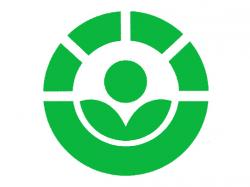Multiple Interests Working To Persuade Health Canada To Approve Irradiation
April 25, 2013 | 2 min to read

Canadians aren’t so sure—yet Watching Iotron Industries’ irradiation technology in action brings back memories of Star Trek episodes from the 1960s. Here at the company’s flagship facility in Port Coquitlam, B.C., trays of products roll along an hourglass conveyor system into an electron beam accelerator, where they are swept from all sides by a series of rapid-fire electrons to kill pathogens. A few minutes later, they roll out sterilized.
In our bacteria-wary world, the technology represents a huge growth opportunity for Iotron. E. coli and listeria cases are on the rise across North America, including the largest beef recall in Canadian history last fall. After more than 20 years of sterilizing medical products and bonding metals for the military, Iotron is planning to use its proprietary electron beam accelerator to capitalize on the heightened awareness of food safety. In doing so, it must also explain to skeptics that, while radiation energy is used in the process, irradiated foods do not become radioactive.
Iotron’s irradiation technology was first developed by Atomic Energy of Canada Ltd. in Ottawa. The founder and current chairman of Iotron, Lloyd Scott, bought the irradiation unit from AECL 22 years ago and moved it to B.C., after selling his construction business in his late 50s. Scott began using the technology to sterilize medical products and enhance the colour of gemstones, which was a big market at the time. When Ottawa sold off the AECL program in 2001, Iotron purchased the technology and patents outright, betting on a boost in irradiation uses. Scott eventually sold other businesses he had purchased over the years, including a winery in California, to keep Iotron alive.
To read the rest of the story, please go to: The Globe And Mail
